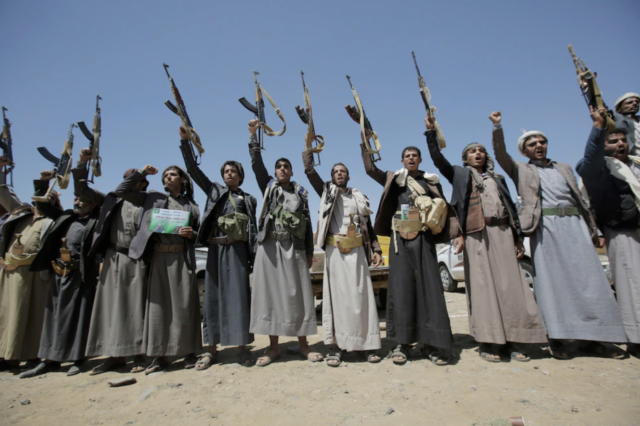
Houthi rebels conducted drone and ballistic missile strikes on Riyadh on Tuesday, targeting military and government outposts in Saudi Arabian capital, according to the group’s spokesperson. The Saudi-led coalition said it intercepted a missile targeting the Saudi capital, but made no comments on the claim that the ministries and airbase were hit.
If the reports are true, it would mark the largest attack aimed at Saudi soil since the start of the conflict in 2014 between the Iranian-backed Houthi and Saudi-supported forces in Yemen. The Saudi coalition said it intercepted “eight booby-trapped unmanned aircraft” and “three ballistic missiles” targeting military sites, including Salman Air Base and the cities of Jazan and Najran. Houthi rebels warned Riyadh that they plan to carry out “stronger and tougher military operations” until Saudi Arabia stops what they called its aggression in Yemen.
The airstrikes occurred while Saudi Arabia is trying to diminish tensions in the south between the Yemeni government and the Southern Transitional Council (STC), its two most important allies in the country. The STC is a separatist movement backed by the United Arab Emirates trying to create its own government. Since 2018 the two groups have occasionally clashed although they share a common enemy, the northern-based Houthi. Tensions were at their highest when the STC took control of Socotra, an island to the south of Yemen. A cease-fire was brokered on June 22 between the Yemeni government and the STC, one day before the attack on the Saudi capital.
Iran provides weapons and support to the Shiite Houthi rebels in hopes to expand its influence in the region. Since the start of the war, the U.S. Navy has intercepted weapon convoys in the Gulf of Aden from Iran, coming from the Gulf of Oman destined to Yemen. Often these shipments include ballistic missiles, anti-tank guided weapons, and even surface-to-air interceptors.
The United States continues to support Riyadh and its Gulf allies through intelligence, military advice, and logistical support against the Houthis. Additionally, the U.S. has deployed THAAD (Theater High Altitude Area Defense) and Patriot missiles in Saudi Arabia capable of stopping such ballistic missiles aimed at Saudi soil from Iran.
Since the Iranian-backed Houthi captured the country’s capital of Sana’a in 2014, Yemen has faced a severe humanitarian crisis. The U.N. estimates the war is responsible for 100,000 deaths with the crisis is expected to worsen this year. International aid agencies have not been capable of obtaining as many donations while the world focuses on COVID-19.

